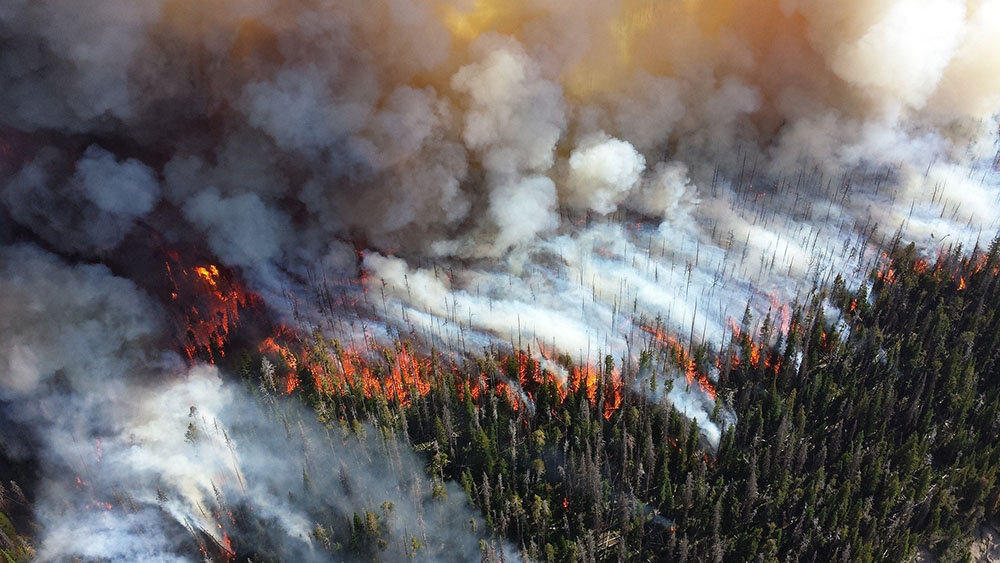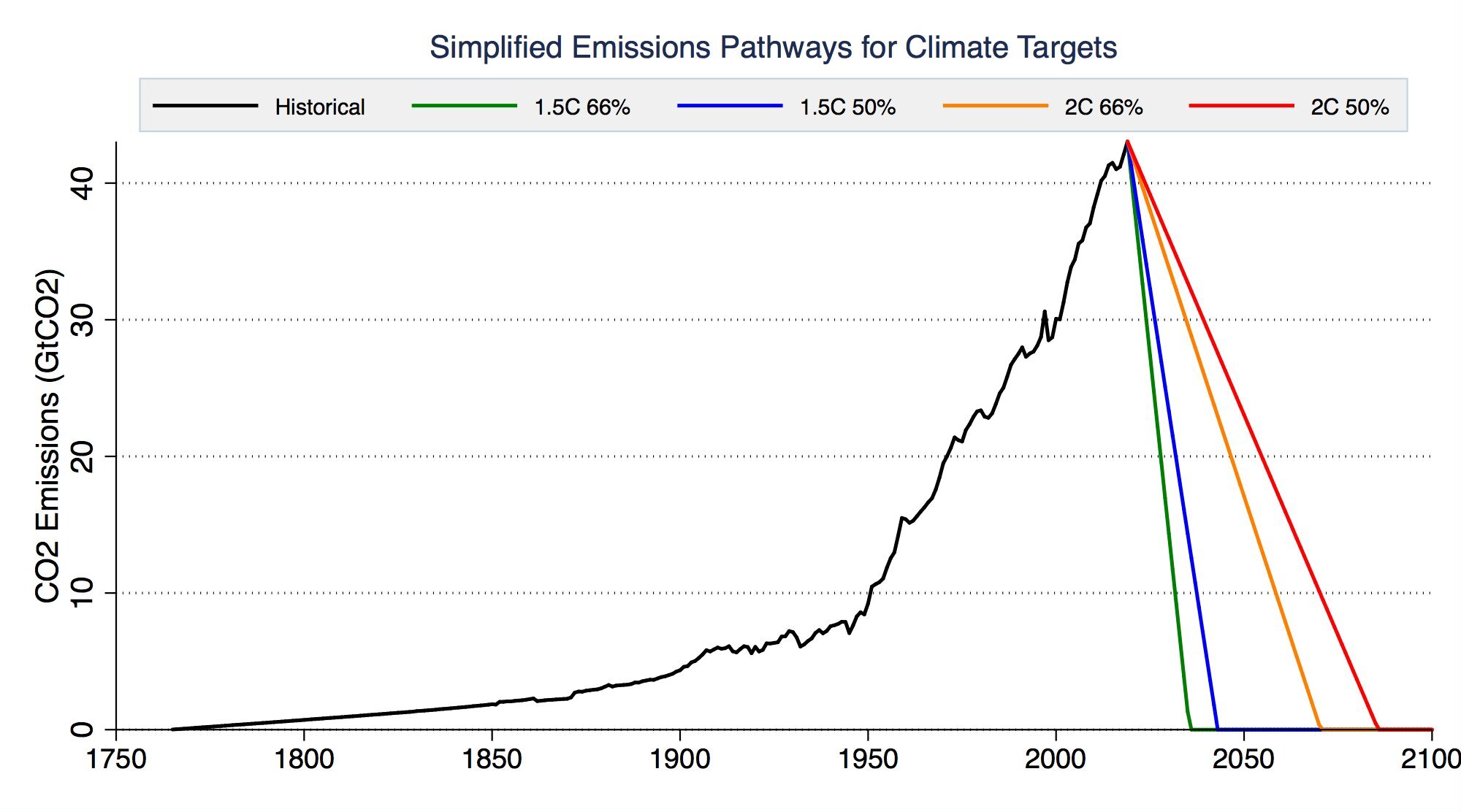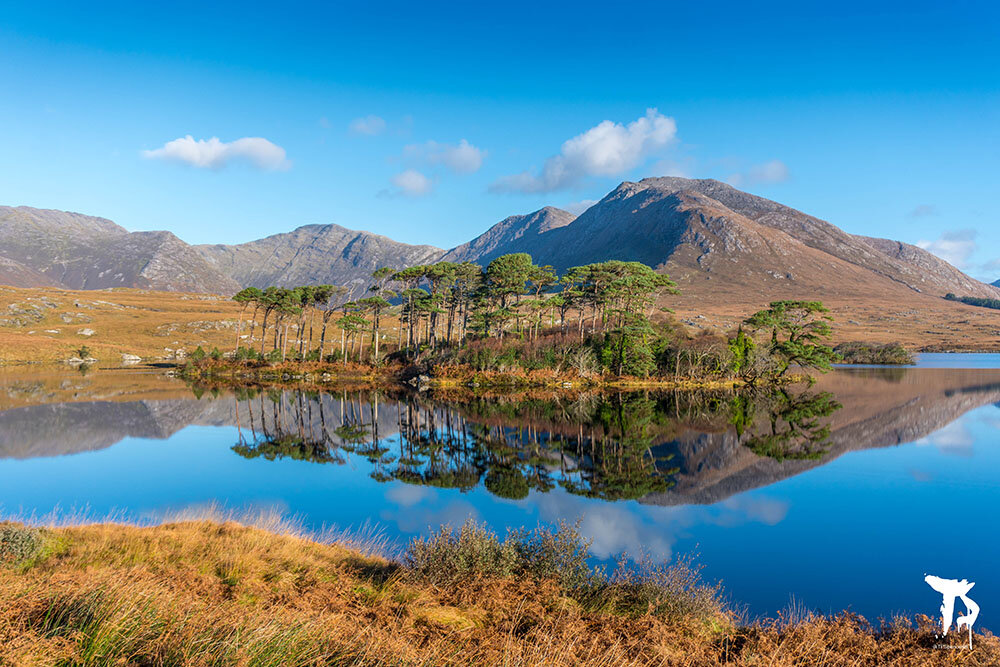
7 Years To Act
The Climate Crisis Timeline
While some may believe that climate change won’t impact us in our lifetime, we’re already seeing the impacts in our daily lives – from increased flooding and wildfires, to failing harvests, and even increased likelihood of pandemics.
While we have known about the human impact on climate change since the 1960s, little action has been taken in that time and our emissions have only increase. Time is running out.
Just how much time do we have left to take action?
7 years and 95 days.
Countdown clock
To keep our minds focused on the greatest threat to humanity and all life on this planet, a Climate Clock has been installed in New York City to mark Climate Week 2020.
The clock counts down the number of years, days, hours, minutes and seconds left to reduce our greenhouse gas emissions enough to give the Earth a 67% chance of keeping the world under 1.5⁰C of warming – enough to avert catastrophe.
With each passing day that we don’t take action, the steps we take become more drastic the following day.
However, instead of being a doomsday clock, the aim is that this will highlight that there is still time to take action, and that the current trajectory of our harmful emissions is not unstoppable.
Much like with a medical diagnosis, we know the problem and we also have the means to take practical steps to give ourselves, and the other species that we share this planet with, the best quality and length of life.
To find out what your current carbon footprint is, and how to reduce it, try the WWF’s calculator – it only takes five minutes and can give you practical steps to help fight climate change.
Delayed action on the climate crisis since the 1960s has left us in a position where more drastic action is needed to curb our emissions
Why we must hit those deadlines
So what happens if we as individuals, as consumers and as nations do not take the necessary steps to hit the 2028 deadline?
In short, the world as we know it will change radically in an incredibly short space of time.
At present we are on course to hit a minimum of 2⁰C warming between 2030-2040, at which point we will see major crop failures alongside the arctic becoming entirely free of ice, resulting in rising sea levels that will cause extensive floods.
Alongside this, we would see a mass displacement of people from the poorest and lowest-lying nations, as well as those along the equator, as their homes become either untenable or are swept under water.
It is estimated that a rise of 1.5⁰C to 2⁰C will result in $54 trillion in damages to ecosystems around the world according to the IPCC – that is 142 times more than Ireland’s GDP. We simply cannot afford not to act.
If that sounds alarming, bear in mind that it is not out of the question that we could experience a 4⁰C warming – in fact, the latest IPCC projections show that there is a 66% chance that temperatures could rise between 2.4⁰C and 6.4⁰C between the years 2060-2100 without drastic and urgent action.
Credit: Prof Ed Hawkins
Should this occur, the Saharan deserts will expand into southern and central Europe, ending all agriculture in that region, life in the oceans will die off at a rapid rate – from micro-plankton up to the whales that feed on them, and everything in between.
Many tree species will die off in all but a few regions, while wildfires and heatwaves will become increasingly common and expose an additional 420 million people to temperatures that will prove deadly to human life.
Terrified? Then act!
This is terrifying – there is no other way of looking at it.
But it won’t get better by burying our heads in the sand. Sadly the inaction of corporations and governments since the 1960s shows that they cannot be relied on to act in our best interests without us forcing them to do so.
Here are some actions that you can take today to avert the climate crisis:
Email your TDs – Tell your TD that you want to see proper and timely climate action, and that we’re running out of time. Stop Climate Chaos have pre-written templates that they’ll email for you, and which take less than a minute to complete
Calculate your carbon footprint – Find out where you are creating your biggest carbon emissions and learn how to make choices to reduce them using the WWF’s calculator
Fly less – The emissions from flying aren’t properly regulated and flying is one of the most energy-intense things you can do. Reducing your flights and using other forms of transport can make a huge difference
Switch to an electric car – Road transport accounts for 20-25% of all emissions worldwide. By switching to an electric car you won’t be creating any emissions when you drive it, and powering it with renewable energy means it will be emissions-free entirely
Eat less meat – Emissions from agriculture account for 11% of global greenhouse gases, and have risen by 14% since the year 2000. This is even worse in Ireland, where agriculture accounts for 34% of harmful emissions. Eating less meat and dairy can make a huge difference, and there are tonnes of plant-based substitutes that taste great
Install solar panels – In one hour the sun provides enough energy to power the Earth for a year. By installing solar panels you can save money on heating and powering your home, while also dramatically reducing your carbon footprint
Join a local action group – All this can feel overwhelming, but finding others who are taking action and finding out the steps that they are taking to become carbon neutral can really help. The Action Network will put you in touch with helpful people and resources.
What To Read Next
Giving Woodland Space To Breath
Discover Ray O’Foghlu's ingenious idea to connect woodland and encourage natural regeneration of forests to help Ireland fight climate change
Your Guide To Greenhouse Gases
A quick guide to the most potent and common greenhouse gases, the harmful effects they are having here in Ireland, and how to avoid misinformation about them





